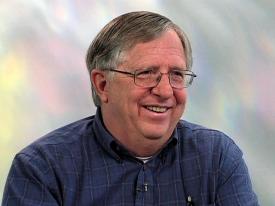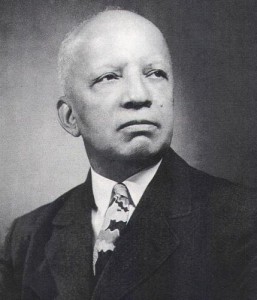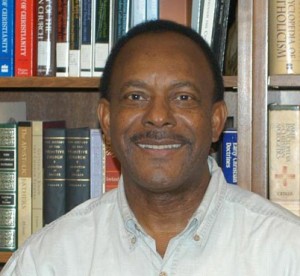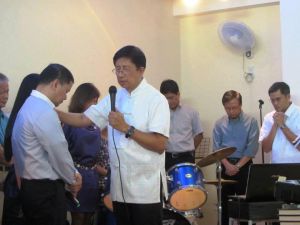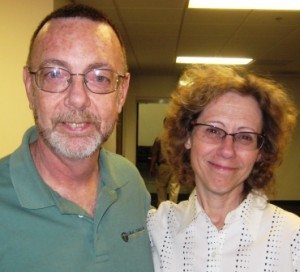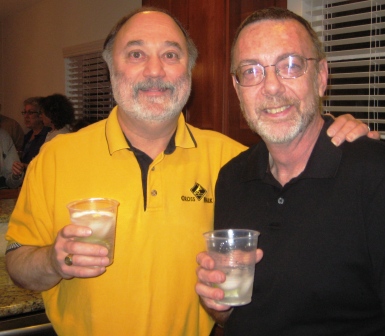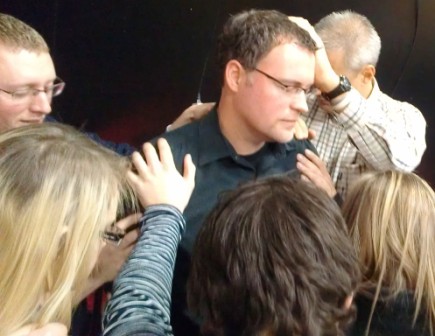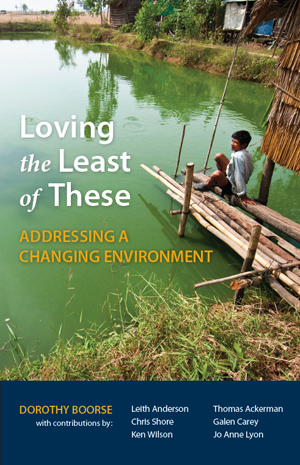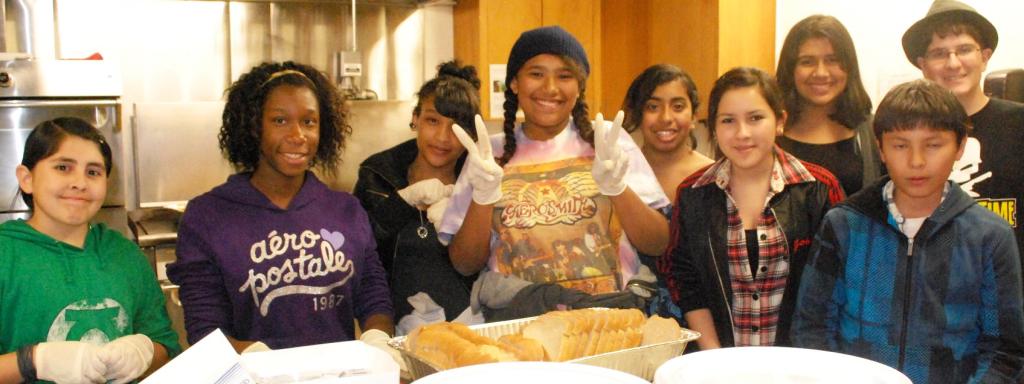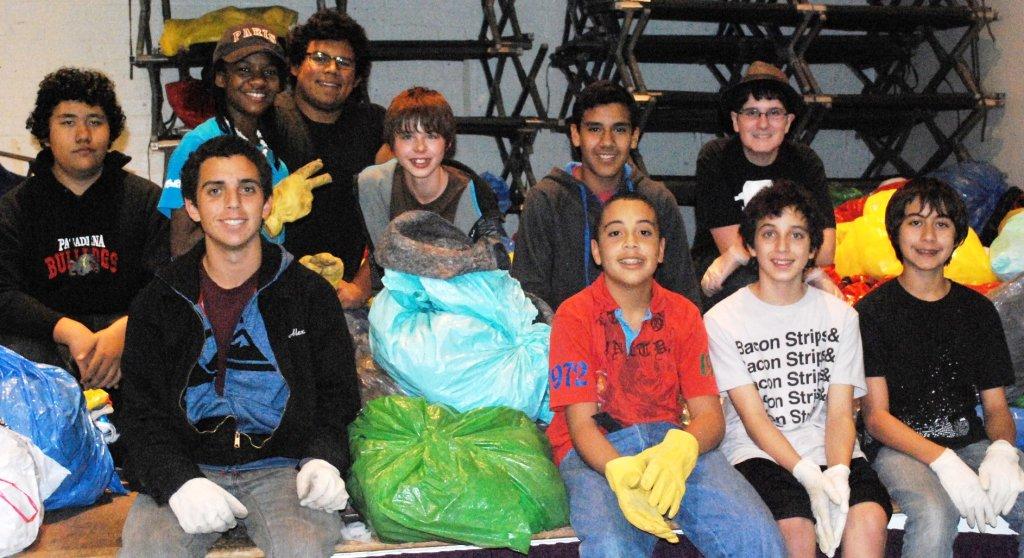Dear brothers and sisters in Christ,
Richard Frankel, one of our pastors in the Chicago area, sent me this cartoon (reproduced here with permission). I just had to share it with you.

The cartoon highlights how some preachers distort the Gospel. The Gospel means Good News and good news is supposed to make you feel better, more hopeful, not make you want to curl up into the fetal position with fear!
Fear is, of course, a motivator. It is easy to manipulate scripture into an intimidating doomsday message, which will get attention and gain a following. However, when the prophecy fails, we rarely if ever, hear those preachers apologize for their false predictions. Most often we just hear justifications and excuses, as they try to maintain their authority by reigniting fear.
Remember Y2K? As the new millennium approached there were dire predictions that many older computers could not process the date change from 1999 to 2000. This, it was suggested, would lead to catastrophic failures, and a world crisis. Many leading preachers jumped on the bandwagon, warning that the computers crashing would signal the beginning of the tribulation. Some were even selling dehydrated food and water purifiers to be prepared, or encouraging folks to stockpile propane and withdraw cash from their banks.
A well-known televangelist told his viewers the Holy Spirit warned him about Y2K. Another described Y2K as “the biggest problem the modern world has ever faced.” He forecast a financial crisis that would bring the world economy into a state of meltdown the likes of which no living human has ever experienced. Yet another distributed a packet on “The Y2K Time Bomb,” including a video, “A Christian’s Guide to Y2K.”
When the fateful moment arrived very little happened. The worst report I recall was that 150 slot machines at racetracks in Delaware stopped working. In Australia, two bus ticket-validation machines stopped working. The worst damage occurred in Germany where 20 million bankcards became unusable. Some customers temporarily lost use of their email and their home pages disappeared. One US spy satellite had problems for a few hours. But the world as we know it kept going. The doomsayers were shown, once again, to be false prophets.
It isn’t just Christians who do this. Predictions about catastrophe happen in almost every religious tradition. Hindus, Muslims, Buddhists, Zoroastrians all do it. The early Central American civilizations such as the Toltecs and Mayans, and Native American Indian cultures like the Hopi, Navajo, and Lakota Sioux all had tragic prophetic speculations.
The latest end-of-the-world obsession concerns the Mayan Calendar that ends a 144,000-day cycle this year on Dec. 21, the day of the winter solstice. The number 144,000 sounds biblical, so the doomsayers are once again out there warning us to expect something drastic to happen. Unfortunately there will be some who will be taken in by it. Fear, it seems, is never far away.
All this totally misses the point and the purpose of prophecy. As an angel explained to John in Revelation 19:10: “The testimony of Jesus is the spirit of prophecy.” And the testimony of Jesus is good news – of his salvation and forgiveness and eternal life. This means that the Gospel is itself the true prophetic word.
Does the Gospel, then, deny or overlook the “bad news” of our sin, the power of evil and its tragic consequences? No, it assumes it while never giving it center stage, never lending it the upper hand. Why not? Because Jesus himself is the first and the last Word. Through his life of obedience, his crucifixion, his resurrection, his ascension, once and for all, evil ultimately has been conquered, sin is forgiven, death itself has been overcome. New life is at hand.
Yes, hearing and receiving the Gospel calls for repentance—of our unbelief in the truth and reality of who Jesus is and what he has done. This repentance leads to faith, hope and love. So the prophetic testimony of Jesus should not leave us curled up in the fetal position. He says to us now in the midst of our need, “I have come that they may have life, and have it to the full” (John 10:10) and “Behold, I am making all things new” (Rev. 21:5).
May our focus always be Jesus and his gospel!
In his service,
Joseph Tkach
